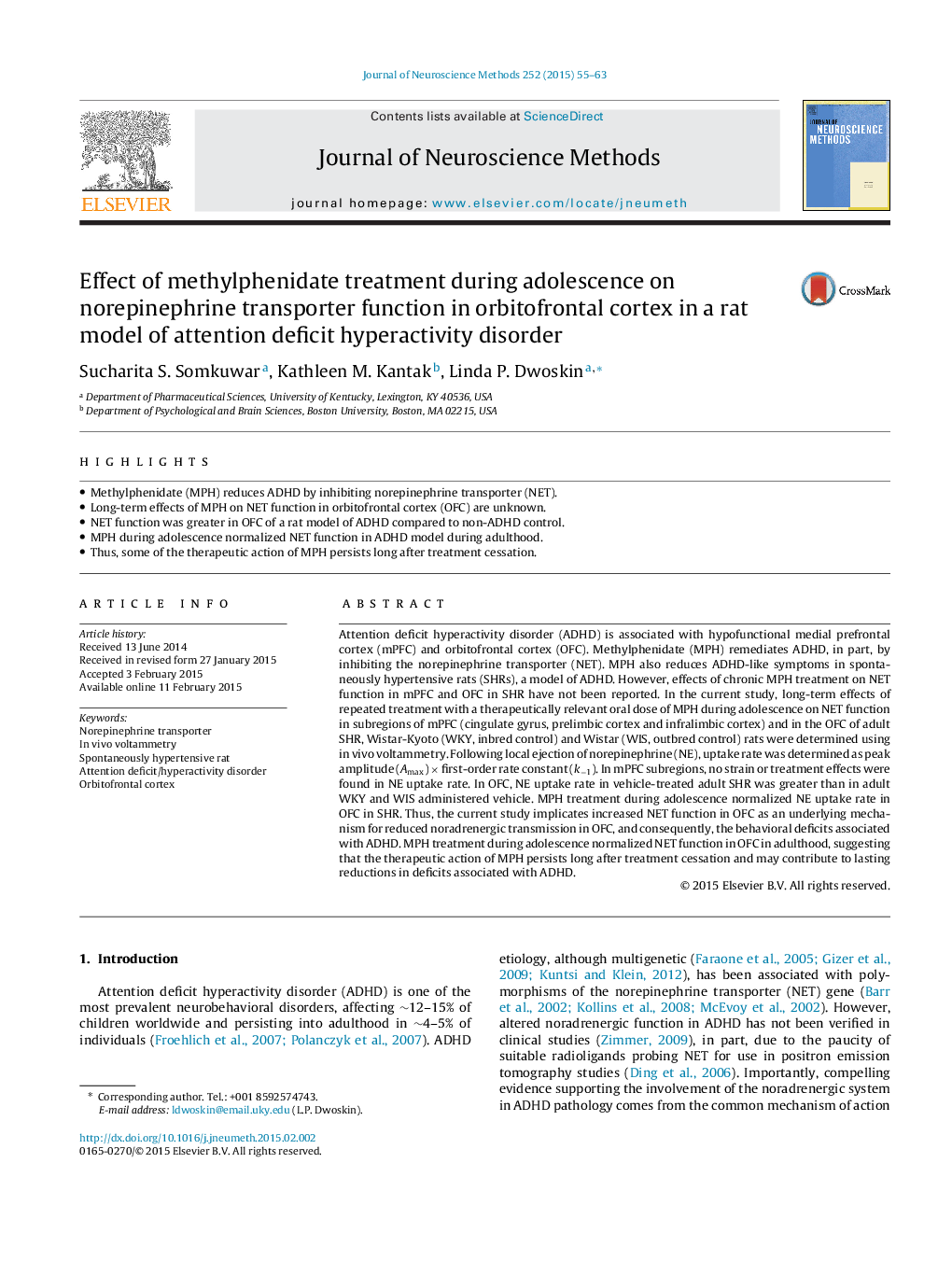| Article ID | Journal | Published Year | Pages | File Type |
|---|---|---|---|---|
| 4334907 | Journal of Neuroscience Methods | 2015 | 9 Pages |
•Methylphenidate (MPH) reduces ADHD by inhibiting norepinephrine transporter (NET).•Long-term effects of MPH on NET function in orbitofrontal cortex (OFC) are unknown.•NET function was greater in OFC of a rat model of ADHD compared to non-ADHD control.•MPH during adolescence normalized NET function in ADHD model during adulthood.•Thus, some of the therapeutic action of MPH persists long after treatment cessation.
Attention deficit hyperactivity disorder (ADHD) is associated with hypofunctional medial prefrontal cortex (mPFC) and orbitofrontal cortex (OFC). Methylphenidate (MPH) remediates ADHD, in part, by inhibiting the norepinephrine transporter (NET). MPH also reduces ADHD-like symptoms in spontaneously hypertensive rats (SHRs), a model of ADHD. However, effects of chronic MPH treatment on NET function in mPFC and OFC in SHR have not been reported. In the current study, long-term effects of repeated treatment with a therapeutically relevant oral dose of MPH during adolescence on NET function in subregions of mPFC (cingulate gyrus, prelimbic cortex and infralimbic cortex) and in the OFC of adult SHR, Wistar-Kyoto (WKY, inbred control) and Wistar (WIS, outbred control) rats were determined using in vivo voltammetry. Following local ejection of norepinephrine (NE), uptake rate was determined as peak amplitude (Amax) × first-order rate constant (k−1). In mPFC subregions, no strain or treatment effects were found in NE uptake rate. In OFC, NE uptake rate in vehicle-treated adult SHR was greater than in adult WKY and WIS administered vehicle. MPH treatment during adolescence normalized NE uptake rate in OFC in SHR. Thus, the current study implicates increased NET function in OFC as an underlying mechanism for reduced noradrenergic transmission in OFC, and consequently, the behavioral deficits associated with ADHD. MPH treatment during adolescence normalized NET function in OFC in adulthood, suggesting that the therapeutic action of MPH persists long after treatment cessation and may contribute to lasting reductions in deficits associated with ADHD.
